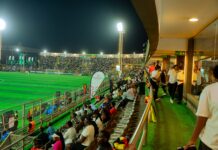Complied by Nsiiro jacob
Brazil’s recent descent into political and economic turmoil has distracted from the country’s struggle to prepare for the 2016 Summer Olympics, and a recent survey of favela residents in Rio de Janeiro indicates that the force trusted to ensure order is part of the problem. A survey of residents between the ages of 15 and 59 in the northern and southern zones of Rio’s favelas — poor and underdeveloped neighborhoods in and around the city — found that more of them are afraid of the city’s police force than they are of the drug traffickers and illegal militias that operate in and around the city.
In the northern zone, which has a high homicide rate, 59% of respondents said they feared the police, and 58.4% reported being afraid of traffickers. The difference was greater in the southern zone; just under 53% said they were afraid of the police, while 42% reported being afraid of traffickers. In the northern zone, 53.3% said they were afraid of militias, while only 43.8% of those in the southern zone said the same. Given the Rio police force’s track record, those responses are not surprising. In 2015, Rio’s police killed 307 people, accounting for one in five homicides in the city that year, according to Amnesty International. Throughout Rio de Janeiro state, police killed 580 people in 2014, a 40% jump over the previous year. In 2015, police killings in the state jumped again, to 645 people. Use of excessive force by police in Rio state has surged, Amnesty notes, “and the majority of victims are young black men from favelas and marginalized areas.”
A UN report published late last year connected rising police violence — in particular the killing of children — to “widespread impunity” for security forces. Renate Winter, vice president of the UN Committee on the Rights of the Child, said the violence wasn’t new, but that it was most palpable in Rio de Janeiro, as part of an effort to “present a problem-free city to the world,” though Brazilian officials disputed the UN’s findings. Police violence has increased as authorities have carried out evictions of thousands of families living in Rio. A group of activists in the city say more than 77,000 people were forcibly evicted between 2009 and 2015. In many cases, government plans to improve infrastructure and services in favelas have been delayed or canceled.





















